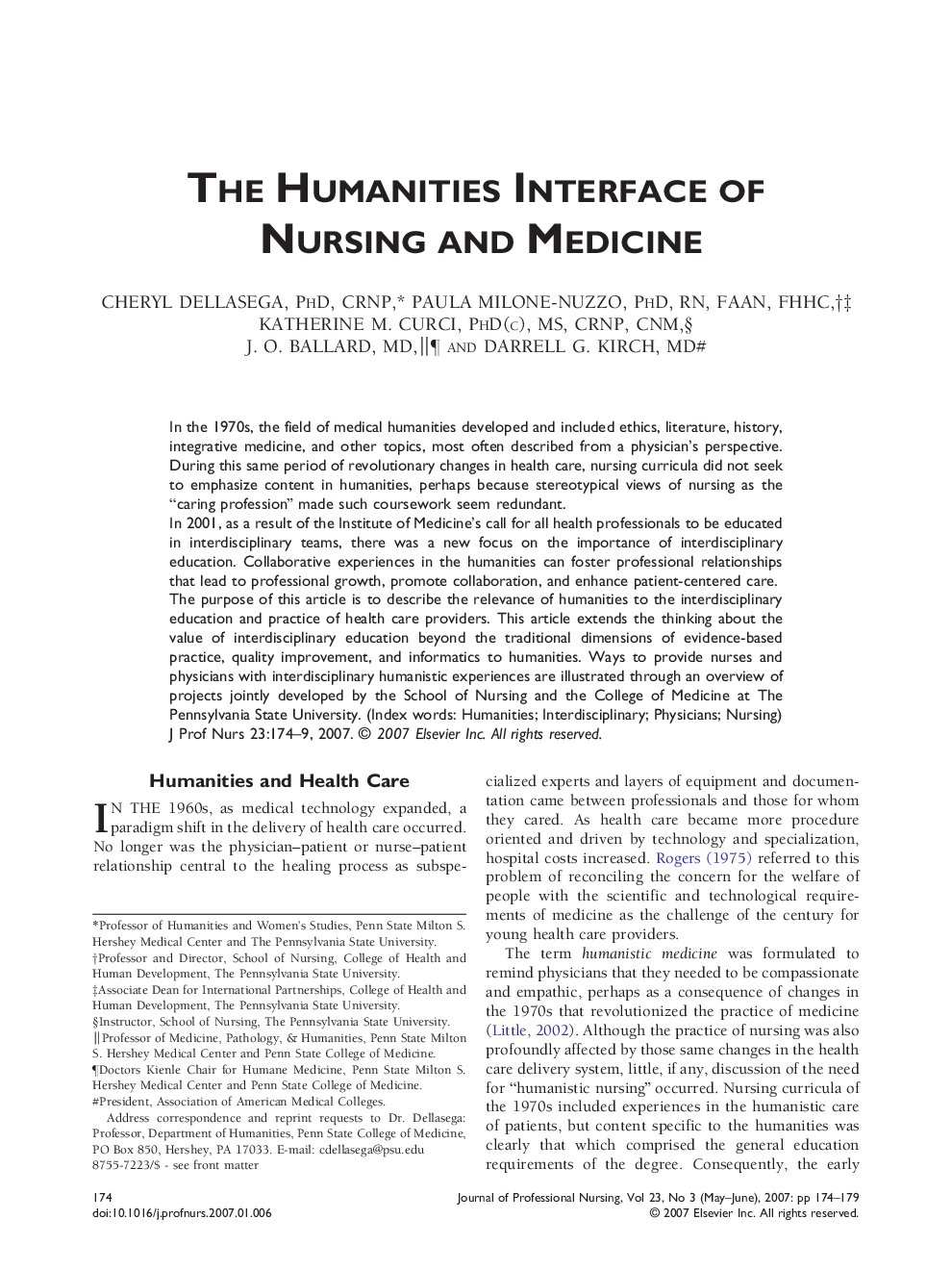| Article ID | Journal | Published Year | Pages | File Type |
|---|---|---|---|---|
| 2668999 | Journal of Professional Nursing | 2007 | 6 Pages |
In the 1970s, the field of medical humanities developed and included ethics, literature, history, integrative medicine, and other topics, most often described from a physician's perspective. During this same period of revolutionary changes in health care, nursing curricula did not seek to emphasize content in humanities, perhaps because stereotypical views of nursing as the “caring profession” made such coursework seem redundant.In 2001, as a result of the Institute of Medicine's call for all health professionals to be educated in interdisciplinary teams, there was a new focus on the importance of interdisciplinary education. Collaborative experiences in the humanities can foster professional relationships that lead to professional growth, promote collaboration, and enhance patient-centered care.The purpose of this article is to describe the relevance of humanities to the interdisciplinary education and practice of health care providers. This article extends the thinking about the value of interdisciplinary education beyond the traditional dimensions of evidence-based practice, quality improvement, and informatics to humanities. Ways to provide nurses and physicians with interdisciplinary humanistic experiences are illustrated through an overview of projects jointly developed by the School of Nursing and the College of Medicine at The Pennsylvania State University.
